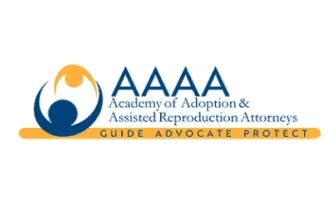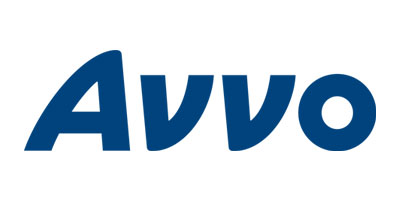- Christina T. Sherman, PLLC
- Surrogacy and IVF Lawyer
Washington Surrogacy Lawyer
In addition to adoption some families are turning to Assisted Reproductive Technology to grow their families. Washington state recently incorporated Assisted Reproductive Technology in the Uniform Parentage Act (UPA 2017).

Surrogacy Contracts
Surrogacy Contracts:
Surrogacy contracts are legal agreements that govern the relationship and responsibilities between intended parents and a surrogate mother. These contracts are crucial in outlining the terms of the arrangement, including compensation, medical procedures, and parental rights. In cases of gestational surrogacy, where the surrogate has no genetic connection to the child, these contracts help establish the intended parents as the legal parents from the outset. Surrogacy contracts also typically address issues like potential contingencies, such as multiple embryo transfers and selective reduction.
IVF Contracts:
In vitro fertilization (IVF) contracts are an integral part of the assisted reproductive technology process. These contracts define the rights and obligations of the intended parents, egg or sperm donors, and the medical professionals involved in the IVF procedure. IVF contracts often address issues related to the use of gametes, the disposition of embryos, and financial arrangements. They ensure that all parties involved are on the same page regarding the fertility treatment and its associated legal, medical, and financial implications.
Donor Agreements:
Donor agreements are contracts that govern the process of donating eggs, sperm, or embryos for assisted reproductive purposes. These agreements clarify the rights and responsibilities of the donor, the recipient, and the resulting child. They often outline issues related to confidentiality, compensation, and the relinquishment of parental rights by the donor. Donor agreements are essential for both traditional and gestational surrogacy arrangements, as they provide a legal framework to address potential disputes or concerns that may arise in the future.
Genetic Surrogacy:
Genetic surrogacy, also known as traditional surrogacy, involves a surrogate mother who uses her own eggs for conception. In genetic surrogacy, the surrogate has a genetic connection to the child she carries. Surrogacy contracts for genetic surrogacy must carefully define the roles and responsibilities of all parties, including the surrogate’s parental rights and any compensation agreements. It’s a complex and sensitive process, requiring comprehensive legal documentation.
Gestational Surrogacy:
Gestational surrogacy is a surrogacy arrangement where the surrogate mother is not genetically related to the child she carries. In this case, IVF contracts are instrumental, as they specify the use of intended parents’ or donor gametes for conception. The surrogacy contract for gestational surrogacy is more focused on the rights and obligations of the intended parents and the surrogate in the absence of a genetic connection. These contracts ensure that the child’s legal parentage is established from the outset, promoting a smoother and more legally secure surrogacy journey.
What is assisted reproductive technology (ART) in Washington State?
Assisted Reproductive Technology (ART) is the production of a pregnancy without sexual intercourse. (RCW 26.26A.700), utilizing such methods as:
- Intrauterine or intracervical insemination;
- Donation of gametes;
- Donation of embryos;
- In-vitro fertilization and transfer of embryos; and
- Intracytoplasmic sperm injection.
Surrogacy involves an agreement between one or more intended parents with a woman who is not an intended parent who agrees to become pregnant through assisted reproduction for the purpose of making the intended parents of the child conceived under the agreement. RCW 26.26A.700
How can Christina T. Sherman, PLLC, help with surrogacy and ART in Washington State

Christina has been privileged to advocate for numerous clients in their adoption cases and has achieved the distinction of being named an Academy Fellow in the Academy of Adoption and Assisted Reproduction Attorneys (AAAA). This esteemed organization is a non-profit entity focused on promoting the competent and ethical practice of adoption and assisted reproduction law. The AAAA actively supports laws and policies that safeguard the best interests of children, the legal standing of families formed through adoption and assisted reproduction, and the rights of all involved parties. Membership in AAAA is granted to attorneys only after undergoing a thorough review process to ensure they uphold the highest standards of ethical and legal practice in the field of adoption.
ART In Washington State
A parent becomes a parent through Assisted Reproductive Technology through valid assisted reproductive technology and surrogacy agreements. We can help you with:
- Discussing your rights and responsibilities;
- Negotiating, Drafting and Editing Assisted Reproductive Technology and Surrogacy contracts on your behalf;
- Ensuring that all parties are easily able to understand what, can sometimes be, complicated contracts;
- Facilitating communications with medical providers, including hospital staff; and
- Establishing Parentage in Washington.
“You’re an amazing Attorney”

Your family is important to us. Contact us today.
We understand that the adoption process may seem overwhelming, and we are dedicated to getting answers to whatever questions you may have.
We serve clients throughout Tacoma, Pierce County, King County, Thurston County, Kitsap County, and the Western Washington area.
Discuss your case with our team
"*" indicates required fields





